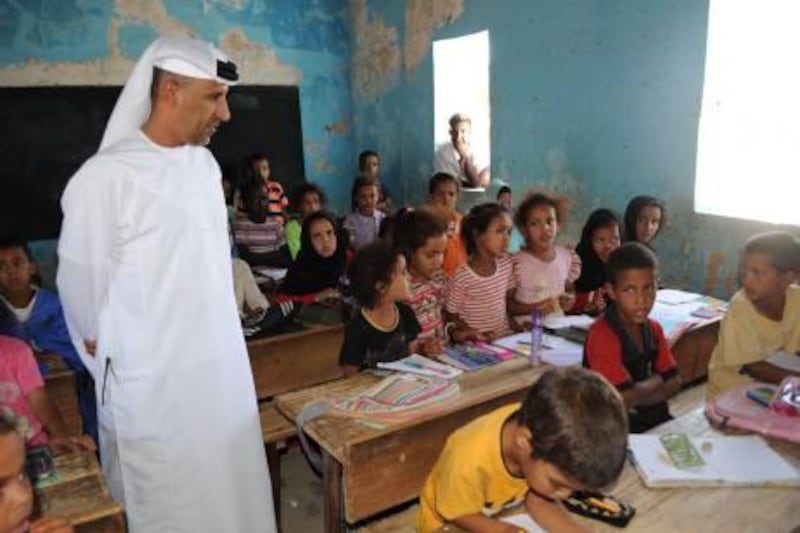A Ministry of Interior delegation has visited Mauritania to check on the status of 577 former child camel jockeys who were repatriated there.
The visit is part of the compensation project the ministry launched in 2007 to compensate children who were used as jockeys in the UAE. The delegation, led by Maj Gen Nasser al Awadhi al Minhali, the acting assistant undersecretary for Naturalisation, Residency and Ports Affairs, made the trip to see how the compensation was disbursed.
The delegation has already carried out similar projects in Sudan and Bangladesh.
The latest visit included meetings with the children, their families and government officials to make sure that the children have been paid their compensation.
The delegation also checked on the status of UAE's projects at the capital, Nawakshot, Dar al Na'eem, al Mina and Hubaileesh. The projects include schools, healthcare facilities and drinking-water systems.
It also visited the juvenile care centre in Nawakshot, which the UAE project is supporting financially.
Maj Gen al Minhali said the UAE has dealt with the jockeys in a humanitarian way, and by supporting their projects in cooperation with the United Nations Children's Fund has fulfilled all of its obligations towards them.The delegation will pay a visit to Pakistan next month, a country that also supplied youth jockeys.
Following international criticism, the UAE now uses robots instead of children as jockeys. Using jockeys younger than 18 was made illegal in 2002, but the law was not enforced until 2005. Until then, most of the estimated 3,000 children involved continued riding.
From 2005 to 2007, about 1,100 children were returned to their home countries, although that was only a fraction of the estimated number who were used as jockeys. In December 2006, the Government pledged US$9 million for a compensation and integration programme under a 2005 agreement made with Unicef.







